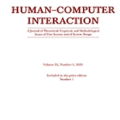Chatbots systems, despite their popularity in today's HCI and CSCW research, fall short for one of the two reasons: 1) many of the systems use a rule-based dialog flow, thus they can only respond to a limited number of pre-defined inputs with pre-scripted responses; or 2) they are designed with a focus on single-user scenarios, thus it is unclear how these systems may affect other users or the community. In this paper, we develop a generalizable chatbot architecture (CASS) to provide social support for community members in an online health community. The CASS architecture is based on advanced neural network algorithms, thus it can handle new inputs from users and generate a variety of responses to them. CASS is also generalizable as it can be easily migrate to other online communities. With a follow-up field experiment, CASS is proven useful in supporting individual members who seek emotional support. Our work also contributes to fill the research gap on how a chatbot may influence the whole community's engagement.
翻译:查波特系统尽管在今天的HCI和CSCW研究中受到欢迎,但由于以下两个原因之一而落后:(1) 许多系统使用基于规则的对话框流,因此只能对数量有限的预设投入作出反应,并附有预先规定的答复;或(2) 热波特系统的设计侧重于单一用户的设想,因此不清楚这些系统如何影响其他用户或社区。在本文件中,我们开发了一个可推广的聊天室结构(CASS),为在线卫生界的社区成员提供社会支持。CASS结构以先进的神经网络算法为基础,因此它能够处理用户的新投入并产生各种回应。CASS也可以普遍化,因为它很容易迁移到其他在线社区。通过后续的实地实验,CASS被证明有助于支持寻求情感支持的个人成员。我们的工作也有助于填补关于聊天室如何影响全社区参与的研究空白。





